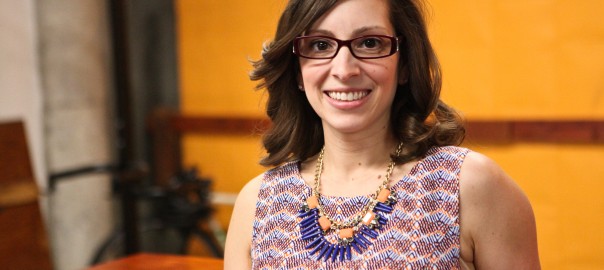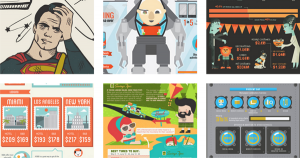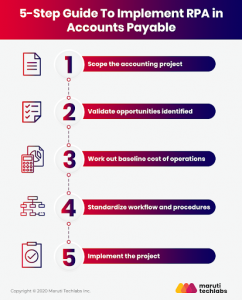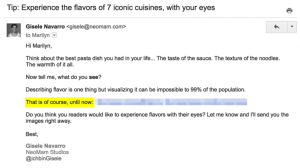After decades of research on successful startup formulas, the odds are still against new entrepreneurs.
Recent findings from Harvard Business School estimate that 75 percent of all startups fail; however the process of starting a company can be less risking by following the “lean startup method.” This methodology favors experimentation over creating the perfect business plan, “iterative design” over traditional upfront development, and an emphasis on nimbleness, speed and agile practices.
Meet three entrepreneurs who have beaten the odds using similar principles that guided them in their 20s and continue to work today.
 Leah Busque, CEO of TaskRabbit
Leah Busque, CEO of TaskRabbit
After completing a degree in math and computer science in 2001, Leah Busque worked for a small software development startup that IBM eventually acquired. In February 2008, while still working as a programmer at IBM, Busque was rushing out of her home and discovered she was out of dog food. She hoped a neighbor might help and realized she wasn’t the only person in need of a favor. “At the time, no one had leveraged social locations and mobile technologies and social networking. Four months later, I quit my job and launched TaskRabbit, a site that allows users to outsource small jobs and tasks to others in their neighborhood based on the idea of ‘neighbors helping neighbors.’”
Busque cashed out her IBM pension to fund the business for the first six months, but by March 2009, at age 28, she was able to secure angel funding for her online and mobile solution and since then has received more than US$ 38 million.
“Looking back at the time I left IBM, I had no concept of what starting a company entailed. I think successful people in general tend to over think things and sometimes this can hurt us. I needed enough confidence that I would learn on the job,” she says. “There were steep learning curves but not to overthink was a key lesson during the early years.”
Busque says these lessons remain valuable years later and uses them for hiring and business development.
 Ammar Sharani, Founder and Chairman of In/Pact
Ammar Sharani, Founder and Chairman of In/Pact
With limited opportunities for entrepreneurs in Syria during the early 1980s, Ammar Sharani relocated to the United States to continue his studies by way of Mississippi State University and the University of Central Florida. Starting several businesses while a student and graduating with a bachelor’s degree in mechanical engineering, Sharani made the conscious choice to follow his passion for business instead of engineering.
Sharani’s big break came “by accident” in 1989 while raising funds for a local school. He negotiated a plan with AT&T where a portion of a customer’s bill would be contributed to a school of the subscriber’s choice.
“While I just wanted to help a local school, it became a profitable business with a higher purpose.” At the time, Sharani was 26 and married with a son. “The stakes were high, but I think having a dream and vision helped keep me going.”
Within a year, his new company, International Community Marketing, expanded to more than 1,000 employees, and sales increased to more than US$ 300 million with clients in the financial services and Fortune 50 telecom companies.
In Sharani’s latest startup, In/Pact, a platform to increase employees’ productivity by engaging with a higher purpose, he continues to be driven by his need to create social and economic value for clients. “Entrepreneurship is when you have passion and blind faith in your mission, to the extent that it becomes almost delusional. Have this kind-of faith in your business and nothing will stop you.”
 Roger Hardy, Chairman of Hardy Capital Partners
Roger Hardy, Chairman of Hardy Capital Partners
Roger Hardy started an online contact lens business from his basement 14 years ago — never expecting that the Vancouver-based e-commerce company would secure a US$ 435 million exit through an international sale in February 2014.
Ever since he was young, Hardy was interested in business. He started selling ice cream at age 11 and operated a T-shirt company in college. Hardy relocated to Vancouver in 1993 and worked in transportation logistics before moving into a marketing position for a contact lens company. There, he recognized difficulties customers endured while buying contact lenses and built a website with his sister for US$ 2,500 to make purchasing easier. At the age of 29, Hardy partnered with snap.com (formerly an independent search engine) and this changed the direction of his business. The US$ 55,000 he invested, which allowed him to get visibility on searches for contact lenses, seemed exorbitant. But the move paid off. In the first month, the company secured US$ 60,000 in sales, marking the starting point expansion.
“The lesson I learned was that you have to think not what the business is today, but what the business will be in a few years. We did US$ 10 million in sales the second year.”
In 2009, the company diversified into eyeglasses, and Hardy hit another pivotal point in his career expanding to eye glasses manufacturing. “Everyone was worried when we had built a state-of-the-art manufacturing plant with initially very little demand for glasses. Again, it was a big investment upfront, but within a year we were making 1,000 pairs a day.”
Currently, Hardy is working on developing SHOES.com, an online shoe company — and he is doing it with a core team from his first startup. “Another lesson I learned during my early stages of being an entrepreneur is the importance of working with great people.”
Business & Finance Articles on Business 2 Community(92)
Report Post